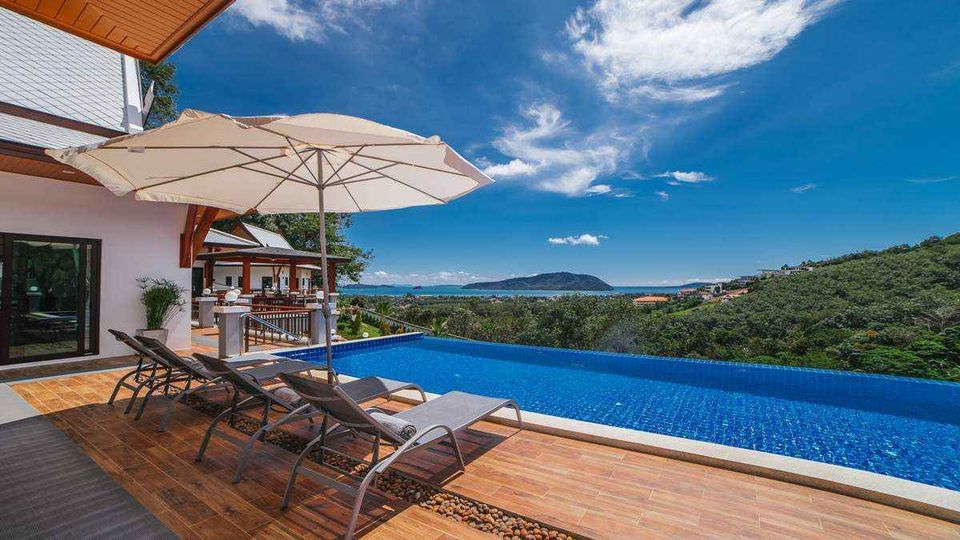What happens when leasehold expires Thailand?

Thai law strictly limits the term of a registered lease to 30 years. A longer period than that can only be done by renewing the lease after the expiry of the 30-year lease. If the lease is made for a longer period, by law it will be reduced to 30 years. Any signed contiguous lease agreement is considered null and void.
How long can you rent a house in Thailand? Real estate lease terms in Thailand can be fixed or periodic. The maximum lease term in Thailand is 30 years (Section 540 of the Civil and Commercial Code Translation section 540: ‘The duration of the lease of immovable property cannot exceed thirty years”.
How much does it cost to lease land in Thailand?
The fee for registering the lease will be only 1.1% of the rental value of the agreement. The land office will have your name and information added to the title deed, and the lease contract will be attached to the deed. This copy will be held at the land office.
How much is a leasehold in Thailand?
The length of the property lease is limited. Tenants usually have to pay 12.5% of the condominium fee every year as rent tax and also have to pay a registration fee of 1%. Tenants do not have voting rights at general meetings.
What is leasehold in Thailand?
What is the right to leasehold property in Thailand? Reserved leasehold means that the owner of the estate not only has a lease for their condo, villa or other property, but they are also shareholders of the Thai limited company that owns the freehold (chanote) of the property.
Can foreigner buy leasehold property in Thailand?

Through this process, foreign nationals can acquire land through leasehold rights and be allowed to own buildings or structures on top of that land. Currently, there are two legal ways for foreigners to own property in Thailand: Foreign Freehold Ownership and Leasehold Ownership.
Can foreigners rent a house in Thailand? Yes. Foreigners can get 100% interest on land lease in Thailand. Unlike direct land ownership, the law allows foreigners to obtain long-term land leases.
Can foreigners buy apartments in Thailand?
Foreigners are not allowed to buy houses in Thailand, but you can buy apartments and condominiums as a non-citizen. However, foreigners cannot make up more than 40% of the apartment block or total condo unit owners. Interestingly, you can buy the entire building as a foreigner, but not the land on which it is built.
Can foreigners buy freehold property in Thailand?
Answer: Under Thai law, foreigners cannot own land directly in their name. However, they can buy a condominium outright (Freehold) or buy a property and lease the ground (usually for 30 years, with an option to extend) on which the property sits.
What is leasehold property Thailand?
What is the protection of leasehold property ownership in Thailand? Reserved leasehold means that the owner of the estate not only has a lease for their condo, villa or other property, but they are also shareholders of the Thai limited company that owns the freehold (chanote) of the property.
What are the disadvantages of buying a leasehold property?

What are the disadvantages of leasehold properties?
- You pay a service charge and ground rent to the freeholder, which can increase
- You need written permission from the freeholder to change the property, and there may be significant costs involved
- You may not be allowed pets
- You may not be able to run a business from home
Why would anyone buy a leasehold property in Hawaii? They get a luxury lifestyle at a fraction of market value, pay monthly rental fees that are typically less than the mortgage payment for the unit (allowing their assets to generate money elsewhere), and pay standard maintenance fees that are expected for such properties.
Can I live in Thailand if I buy a house?

Foreigners are not allowed to buy houses in Thailand, but you can buy apartments and condominiums as a non-citizen. However, foreigners cannot make up more than 40% of the apartment block or total condo unit owners. Interestingly, you can buy the entire building as a foreigner, but not the land on which it is built.
Can I live in Thailand permanently? A Permanent Residence Permit allows you to stay in Thailand permanently without the need for a Visa. Moreover, it is another step to obtain citizenship, and a Thai passport. This is an opportunity that the Thai government offers to only 100 people of each nationality each year.
Can a foreigner buy a house in Thailand?
Foreigners are under the Land Code Act prohibited from owning land in Thailand so it is impossible for foreigners to obtain direct ownership of land and houses in Thailand. Foreigners are allowed to own units in condominium buildings under the Condominium Law.
Can US citizens own homes in Thailand?
Can Americans buy property in Thailand? While US citizens are prohibited from buying land in Thailand, they can, however, apply for long-term land leases of up to 30 years and build structures on the land. They can also buy condominiums from property developers.
How long can you stay in Thailand if you own property?
After buying a successful unit, foreigners, however, face one more important problem to overcome: they stay in Thailand usually for a period of 30-, 60-, or 90-days period that is generally given on tourist visas after they have to leave the country.
What is the difference between tenant and lessee?

The legal term, ‘tenant’ is used to define a person who uses a building or land under a lease. He is different from the tenant in the sense that the tenant pays rent for the use of the room, building or land to the property owner. So, it is the lease that makes the difference between a tenant and a tenant.
What does lessee mean? The legal meaning of lessee: a person who has real or personal property under a special lease: a tenant of real estate under a lease.
Who is called the tenant?
The one who has a job or temporary owner of land or residence of someone special: who rents or leases a place (such as a house) from the owner of the house. A person who holds or owns real estate or sometimes personal property (such as security) by any right.
Is the lessee the owner?
Key takeaways. A lessor is the owner of an asset that is leased, or leased, to another party, known as the lessee. Lessors and lessees enter into binding contracts, known as lease agreements, which spell out the terms of their arrangement.








